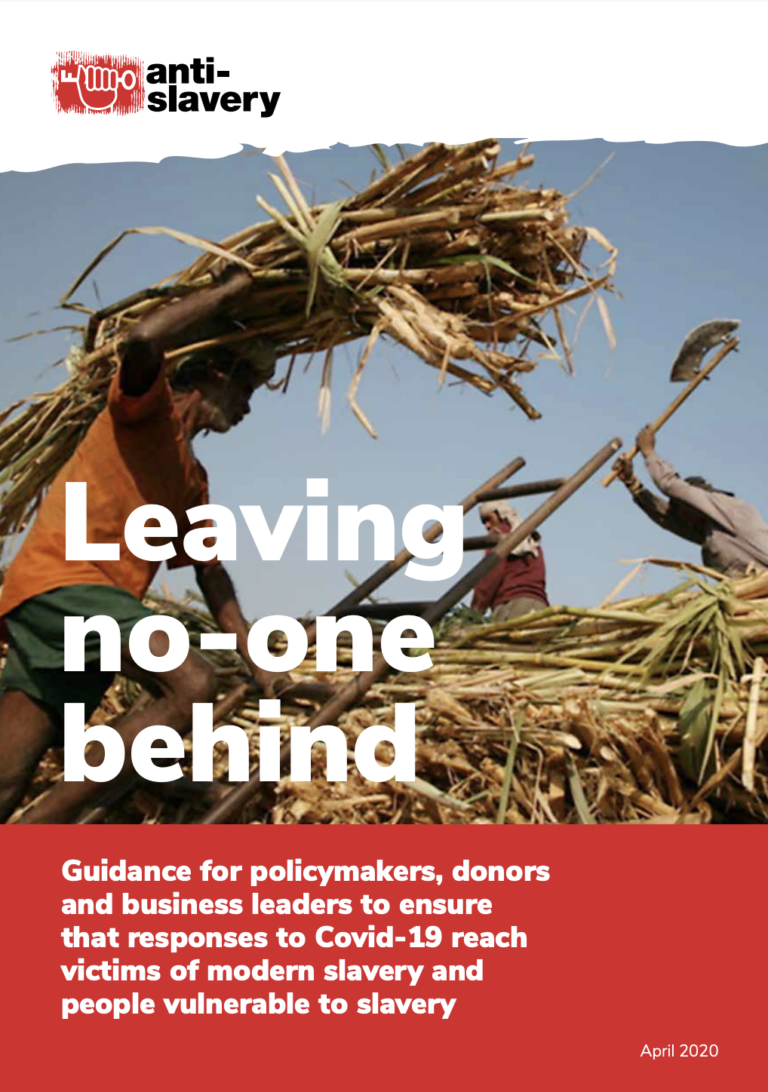This is a guidance for policymakers, donors and business leaders to ensure that responses to Covid-19 reach victims of modern slavery and people vulnerable to slavery.
With the effects on the global economy, the Covid-19 crisis is leading to widespread unemployment, and means that major sections of the global population are at greater risk of exploitation in forced labour and other forms of modern slavery. Extreme economic distress brings with it increased slavery risks as families find themselves with limited choices and must take considerable risks to support their own survival.
Even temporary decisions by global businesses to halt or slow down operations lead to large-scale lay offs in industries such as garment manufacturing in South and South East Asia which result in mass unemployment. With 55%1 of people in slavery because they are working to pay off predatory debts (imposed upon them by people who aim to exploit them), these lay offs threaten an increase in debt bondage in regions where it is already endemic.
Any response to Covid-19, therefore, must be designed to specifically reach and benefit the 40 million people in slavery, in addition to the increased numbers of people now vulnerable to slavery. These people are often unreached by much government development policy and funds, and have been over-looked and excluded in past emergencies.

